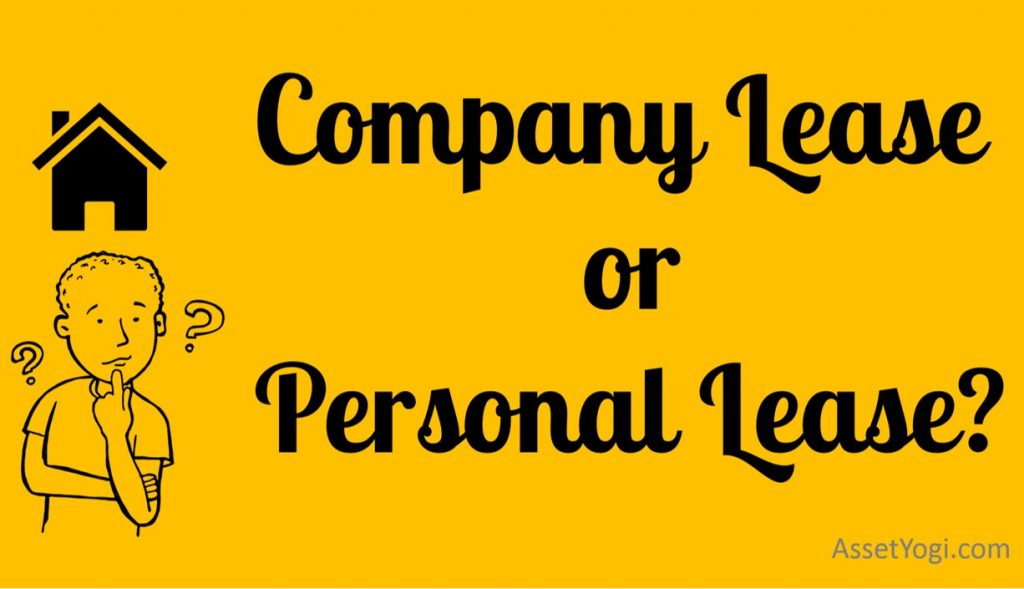When a professional is looking to rent a house, he can either go for a personal lease or a company lease, an option provided by many companies. Both company lease and personal lease have their own merits. In this article, we present to you the differences between the two leases so that you can choose the best lease option that suits you.
What is a Company Lease?
A company lease is a lease agreement signed between the landlord and the employer company (on behalf of its employee). In a company lease, the company becomes the lessee and is liable to pay monthly rent and security deposit. In turn, the company deducts the rent amount from the employee’s salary or adjusts it against HRA (House Rent Allowance), depending on the policy of the company.
What is a Personal Lease?
In a personal lease, the lease agreement is signed between the landlord and the individual. The individual is responsible for paying security deposit and monthly rent.
Best option for Landlord
For a landlord, the best option is a company lease for the following reasons:
- Higher Security – Compared to an individual, a company has a much better financial standing. The landlord can be assured of on-time rent payments.
- Sustained Cash Flow – Generally, companies sign a long-term lease (typically for 24 months or 36 months) and so the landlord will not have to worry about the house lying vacant. On the contrary, an individual may vacate the house in the middle of a lease for various reasons.
- Professional Dealing – Compared to an individual, a company is more aware of general market principles and is much more professional in dealing with respect to the signing and execution of the lease agreement.
Best option for Tenant
A tenant may choose a company lease or a personal lease depending on the following factors:
- Paying Capacity – In case of a company lease, the company will pay for the initial security deposit, which can be a large sum for an individual to arrange at a short notice.
- Hassles – Searching a house, negotiating the lease terms and maintenance of a house is a time consuming and tedious process. In a company lease, the HR or admin department will deal with all these issues in a much more professional manner. Whereas, in a personal lease an individual will have to take all such headaches himself.
- Stability and Security – Since, the firm becomes responsible in case of any legal dispute , a company lease offers higher security for tenant. The landlord cannot evict the tenant before the completion of lease period without notice.
- Flexibility – A personal lease offers more flexibility than a company lease i.e. you can vacate the house at a short, usually a month’s notice. If you are not sure about the period of your stay in the house or about your current job, a personal lease is a better option.
- Tax Benefits – In case of a personal lease, an individual can directly claim HRA deductions under section 10 of income tax act. Whereas, in case of a company lease, depending on the company policy, the company may deduct rent amount or HRA of the employee from his salary, thereby reducing the taxable salary. The individual can calculate whether a personal or a company lease offers better tax benefits.
Conclusion
From a long-term perspective, a company lease is a better option for both landlords and tenants as it offers higher stability and security. In case, an individual is looking for more flexibility or if the tax benefits of a personal lease outscore that of a company lease, a personal lease may be a better option.
Over to you
Like and Share the post. It will help more readers like you. Needless to say, it encourages us to deliver high quality content everyday.
Have I missed anything? Would you like to add something? Please leave your comments below.


